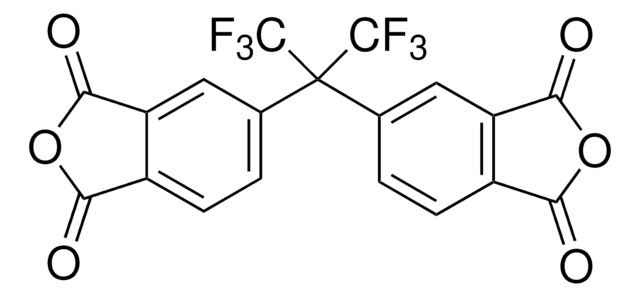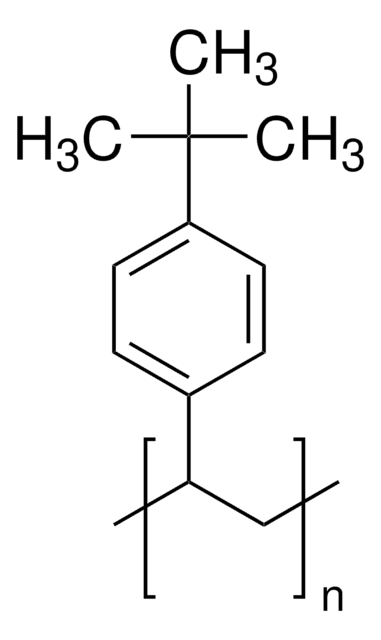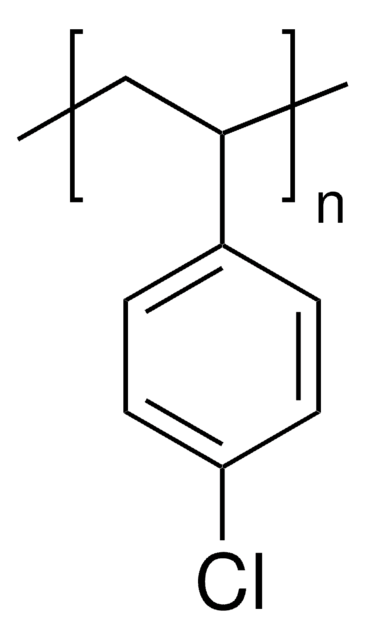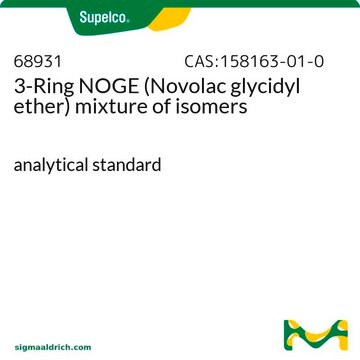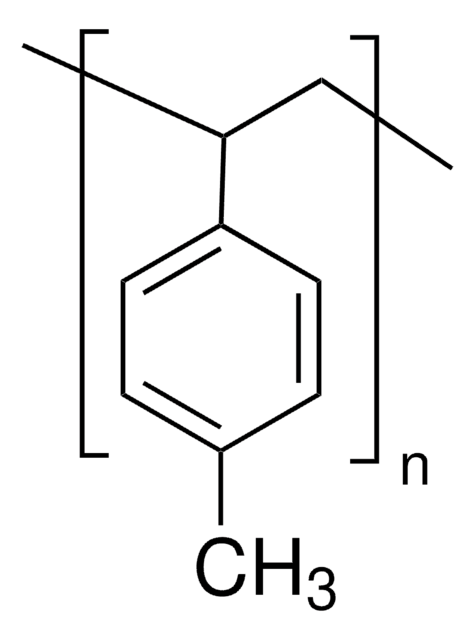436224
Poly(4-vinylphenol)
average Mw ~25,000
Sinónimos:
PVP
About This Item
Productos recomendados
description
intrinsic viscosity parameters α=0.50, k=9.71 × 10-4 dL/g 25°C, in THF
Quality Level
form
powder
mol wt
average Mw ~25,000
greener alternative product characteristics
Design for Energy Efficiency
Learn more about the Principles of Green Chemistry.
sustainability
Greener Alternative Product
intrinsic viscosity
(α=0.50, k=9.71 × 10-4)
mp
360 °C (dec.)
transition temp
Tg 130-185 °C
solubility
alcohols, ethers, ketones and esters: soluble
aromatics, petroleum ethers and chlorinated hydrocarbons: insoluble
density
1.16 g/mL at 25 °C (lit.)
greener alternative category
, Enabling
SMILES string
Oc1ccc(C=C)cc1
InChI
1S/C8H10O/c1-2-7-3-5-8(9)6-4-7/h3-6,9H,2H2,1H3
InChI key
HXDOZKJGKXYMEW-UHFFFAOYSA-N
¿Está buscando productos similares? Visita Guía de comparación de productos
General description
Application
Storage Class
11 - Combustible Solids
wgk_germany
WGK 3
flash_point_f
Not applicable
flash_point_c
Not applicable
ppe
Eyeshields, Gloves, type N95 (US)
Elija entre una de las versiones más recientes:
Certificados de análisis (COA)
¿No ve la versión correcta?
Si necesita una versión concreta, puede buscar un certificado específico por el número de lote.
¿Ya tiene este producto?
Encuentre la documentación para los productos que ha comprado recientemente en la Biblioteca de documentos.
Los clientes también vieron
Artículos
Flexible electronic circuits, displays, and sensors based on organic active materials will enable future generations of electronics products that may eventually enter the mainstream electronics market.
Flexible electronic circuits, displays, and sensors based on organic active materials will enable future generations of electronics products that may eventually enter the mainstream electronics market.
Flexible electronic circuits, displays, and sensors based on organic active materials will enable future generations of electronics products that may eventually enter the mainstream electronics market.
Flexible electronic circuits, displays, and sensors based on organic active materials will enable future generations of electronics products that may eventually enter the mainstream electronics market.
Nuestro equipo de científicos tiene experiencia en todas las áreas de investigación: Ciencias de la vida, Ciencia de los materiales, Síntesis química, Cromatografía, Analítica y muchas otras.
Póngase en contacto con el Servicio técnico









